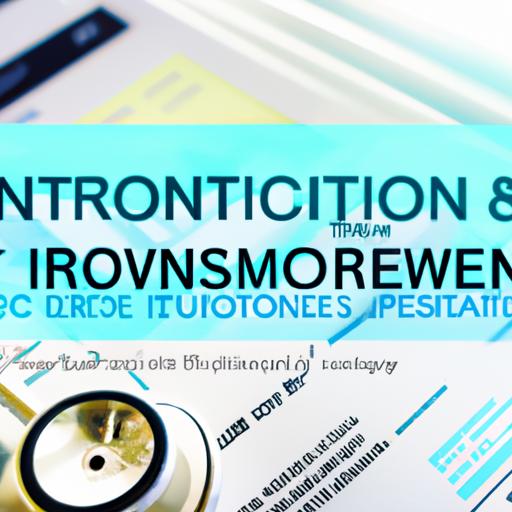
Introduction
In today’s ever-evolving healthcare landscape, the integration of technology has become paramount in ensuring efficient and effective patient care. One such technological advancement that has been instrumental in transforming healthcare operations is healthcare erp software. But what exactly is healthcare ERP software?
A. Definition of healthcare ERP software
Healthcare ERP software, also known as Enterprise Resource Planning software, is a comprehensive solution designed specifically for the healthcare industry to streamline operations, enhance patient care, and improve overall efficiency. This all-in-one system integrates various functions such as electronic health records (EHR) management, billing, inventory control, and more, into a single platform.
B. Importance of healthcare ERP software in the healthcare industry
The importance of healthcare ERP software cannot be overstated. With the increasing demand for quality healthcare services, healthcare providers are turning to ERP software to optimize their operations and deliver superior patient care. By centralizing data, automating processes, and ensuring compliance with regulations, healthcare ERP software plays a crucial role in enhancing organizational efficiency and patient outcomes. Join me on this journey as we delve deeper into the benefits, key features, and factors to consider when choosing the right healthcare ERP software for your organization.
Benefits of Healthcare ERP Software
A. Streamlined Operations and Improved Efficiency
Implementing healthcare ERP software allows healthcare providers to streamline their operations by centralizing data and automating processes. By eliminating manual tasks and integrating various functions into a single platform, healthcare ERP software enhances operational efficiency, reduces errors, and saves valuable time.
B. Enhanced Patient Care and Satisfaction
With healthcare ERP software, healthcare providers can deliver superior patient care by having access to real-time patient information, treatment histories, and personalized care plans. This enables healthcare professionals to make informed decisions quickly, leading to improved patient outcomes and higher levels of patient satisfaction.
C. Increased Data Security and Compliance with Regulations
Data security is a top priority in the healthcare industry, and healthcare ERP software provides robust security measures to protect sensitive patient information. By ensuring compliance with regulations such as HIPAA, healthcare ERP software helps organizations maintain data integrity, confidentiality, and availability, instilling trust among patients and stakeholders.
Key Features of Healthcare ERP Software
A. Electronic Health Records (EHR) Management
One of the primary features of healthcare ERP software is its robust electronic health records (EHR) management capabilities. This functionality allows healthcare providers to efficiently store, track, and manage patient health information in a secure and accessible manner. By digitizing patient records, healthcare ERP software eliminates the need for paper-based documentation, reducing the risk of errors and enhancing overall patient care quality.
B. Billing and Revenue Cycle Management
Efficient billing and revenue cycle management are essential components of any healthcare organization’s operations. Healthcare ERP software streamlines the billing process by automating invoicing, claims processing, and payment tracking. By integrating billing and revenue cycle management into a single platform, healthcare providers can optimize financial workflows, reduce billing errors, and increase revenue collection efficiency.
C. Inventory and Supply Chain Management
Inventory and supply chain management play a crucial role in ensuring seamless healthcare operations. Healthcare ERP software offers robust inventory management features that enable healthcare providers to track and manage medical supplies, equipment, and pharmaceuticals efficiently. By optimizing inventory levels, reducing stockouts, and streamlining supply chain processes, healthcare ERP software helps organizations minimize costs and improve overall operational efficiency.
Conclusion
As we conclude this comprehensive guide to healthcare ERP software, it is evident that the adoption of ERP solutions within the healthcare industry is a game-changer. By seamlessly integrating various functions and processes, healthcare ERP software has revolutionized the way healthcare organizations operate, ultimately leading to improved patient care and organizational efficiency.
In today’s fast-paced healthcare environment, selecting the right healthcare ERP software is crucial. From scalability and customization options to integration with existing systems and cost considerations, there are several factors to keep in mind when choosing the best solution for your organization. Additionally, real-world case studies, such as Hospital A’s improved patient outcomes and reduced costs, and Clinic B’s streamlined operations and increased revenue, further emphasize the tangible benefits of implementing healthcare ERP software.
In closing, the transformative power of healthcare ERP software cannot be underestimated. By leveraging the capabilities of this innovative technology, healthcare providers can enhance patient care, streamline operations, and drive better outcomes for both patients and organizations alike. Embrace the future of healthcare with ERP software and unlock a new realm of possibilities in the ever-evolving healthcare industry.


